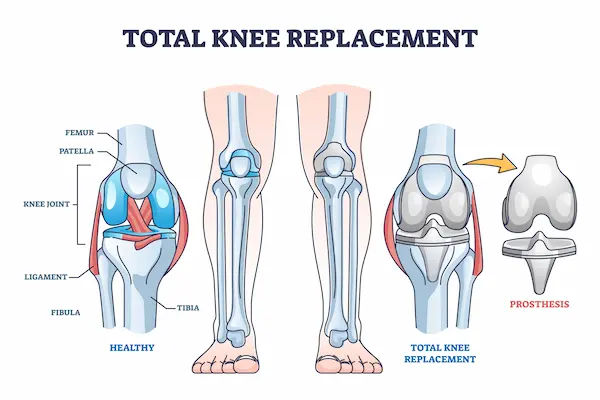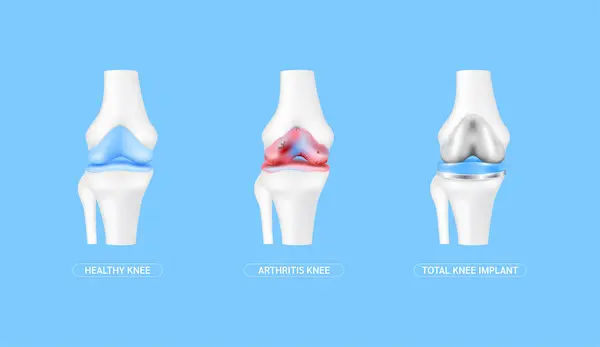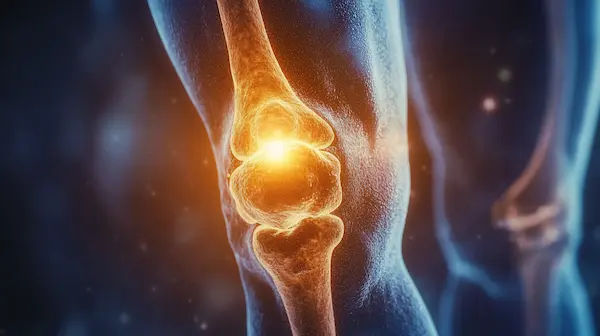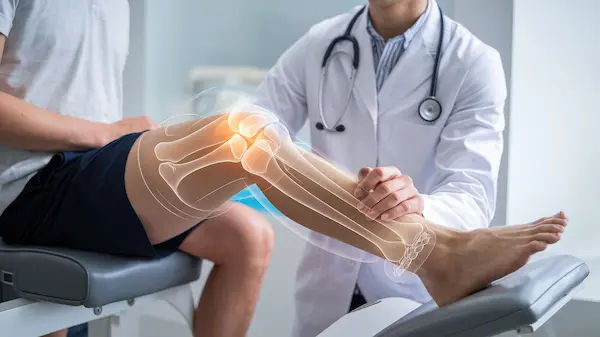- female
- 40 Years
- 14/08/2025
my mri report says the acl is bulky irregular and wavy with increased signals indicating a large partial thickness tear can this heal on its own without needing surgery

More Orthopaedics Health Queries
View allI've been diagnosed with avascular necrosis in both hips stage 3 on the left and stage 2 on the right. The doctor suggested hip replacement surgery, but I'm only 22 and worried about it. Are there any other treatment options besides surgery at this stage?
Stage 2–3 AVN can be managed with core decompression, bisphosphonates, or PRP—joint replacement is for advanced collapse.
Answered by 1 Apollo Doctors
I'm experiencing some pain when I'm either standing up or lying down, specifically in my leg near my stomach. It seems to hurt even more when I put pressure on it. There's no blood or anything like that, but should I be concerned about this? What could be causing the pain?
Registered Medical Practitioner for Medical Fitness Certificate _Authorized Issuers_ 1. _Allopathic doctors_: MBBS or higher degree holders, registered with the Medical Council of India (MCI) or State Medical Council. 2. _Government hospital doctors_: Doctors employed in government hospitals or primary health centers. 3. _Authorized medical officers_: Designated medical officers in companies or organizations. _Requirements for Certificate_ 1. _Letterhead or stamp_: Certificate should be on the doctor's letterhead or stamped with their registration number. 2. _Registration number_: Doctor's registration number with the MCI or State Medical Council should be mentioned. 3. _Date and signature_: Certificate should be dated and signed by the authorized medical practitioner. _Please Note_ 1. _Verify with the company_: Confirm with the company about their specific requirements for the medical fitness certificate. 2. _Choose a qualified doctor_: Ensure the doctor issuing the certificate meets the necessary qualifications and registration requirements.
Answered by 1 Apollo Doctors
I have a bimalleolar fracture in my lower right leg and my surgery is scheduled in two weeks is it safe to wait that long? Also, I've noticed bruising near my knee on my calf, which seems pretty far from the ankle fracture. Should I be worried about that?
A repeat x ray is advised prior to the surgery to check any fractures and soft tissue swelling.
Answered by 1 Apollo Doctors
Disclaimer: Answers on Apollo 247 are not intended to replace your doctor advice. Always seek help of a professional doctor in case of an medical emergency or ailment.




